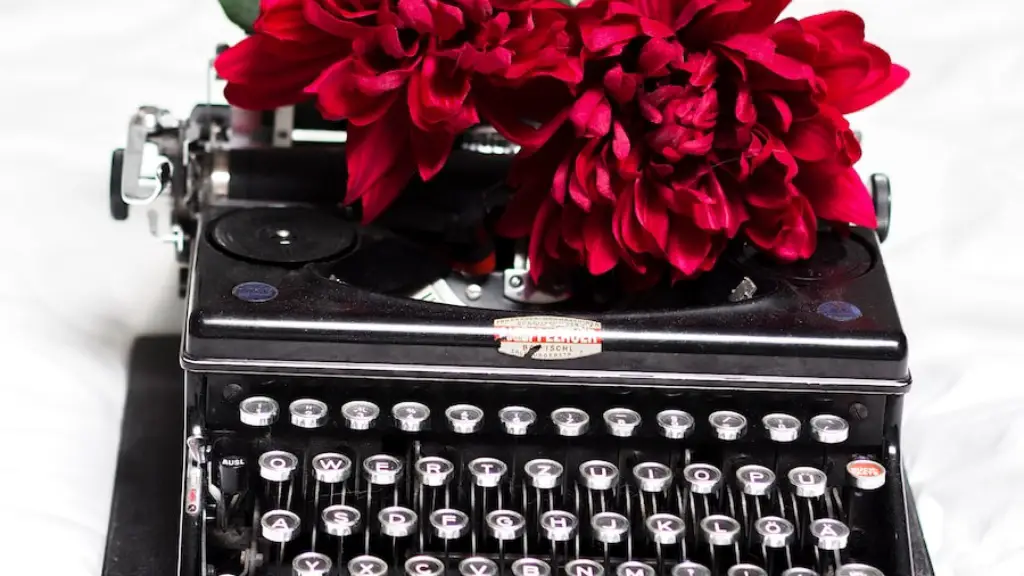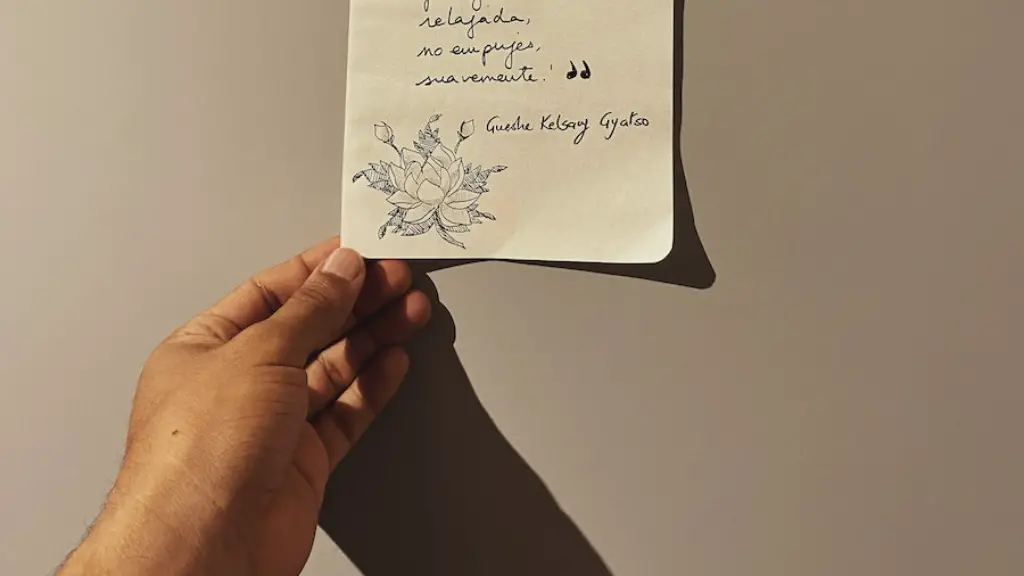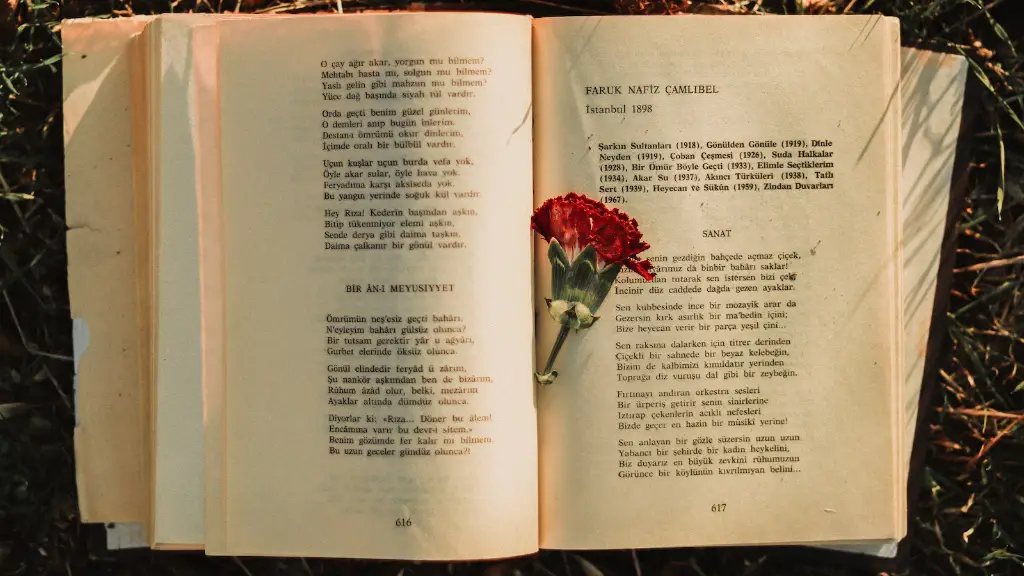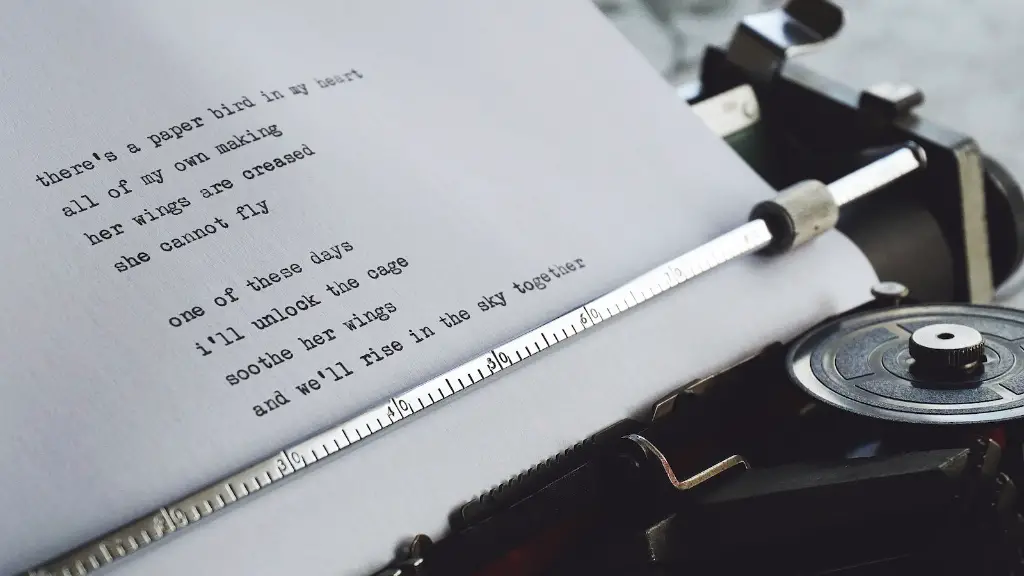The appeal of poetry
Poetry has a universal appeal in all cultures and throughout history. Why, then, is it still so important? What is it about poetry that makes it such an integral part of human culture? It has been argued that, by its very nature, poetry speaks to us on a fundamental level.
Poetry gives us a way to express our emotions and experiences in a powerful and evocative way. By taking the abstract, intangible aspects of our lives and putting them into words, poetry can help us to make sense of our lives, learn from our experiences and find ways to feel connected to the world around us.
It has been argued that poetry also serves as a kind of mirror, reflecting back to us our innermost thoughts and feelings. By exploring the words that poets use – the metaphors, nuances and power of language – we can come to understand ourselves more deeply and gain a greater insight into our own lives.
In addition to this, poetry can also serve as a bridge between different cultures and time periods. Often, a poem written centuries ago can still resonate today, providing comfort and insight even though it was written in a different language and from a very different perspective.
The ability of poetry to bridge cultures, to connect us with our inner selves and to express our emotions in a meaningful way is why many people still turn to it as a source of inspiration and solace. Poetry has always held a special place in our collective consciousness, and it seems that it will continue to do so into the future.
The rhythm of language
Poetry is different from most other forms of expression in that it puts special emphasis on the rhythm of language. Whereas with prose we might get lost in the details of a story or argument, with poetry we can appreciate the way the words sound, even if we don’t fully understand what they mean.
This ability to appreciate the sounds of language for their own sake has a long and storied history. From ancient oral traditions to modern-day rap battles, the power of language to create powerful rhythms has always been appreciated.
This power of poetic language lies in the fact that it can convey much more than literal meaning. Through rhythm, rhyme and other poetic devices, a phrase or verse can reveal hidden depths of meaning and emotion. Understanding this can help us to appreciate the power of poetry on a much deeper level than is possible with spoken or written language alone.
For those who are familiar with complex poetic formulae, such as iambic pentameter, embracing the rhythm of language can be a powerful and rewarding experience. But even those with a more limited understanding of poetic structure can appreciate the way poetic language helps to draw out the emotion and depth of a given situation.
Exploring emotions
Many of us might find it difficult to talk about our emotions in the same way that we might share stories or opinion. This is where poetry can be particularly useful – it gives us a way of expressing our feelings in a way that can be much less intimidating.
Poetry has a unique power to conjure up emotions and depict them from a variety of angles. Whether we are expressing joy or lamenting tragedy – or perhaps something in between – poetry offers us a way of expressing our emotional landscape in words and in a way that many find very powerful.
In this way, poetry can be a powerful tool for those struggling to process their feelings and find a way of expressing them. It can also serve as a mirror, helping us to confront our emotions and work through them in a safe, creative and cathartic way.
From the simple pleasure of rhyming to the more sophisticated structures of classical verse, poetry gives us a way of exploring the full range of our emotions in language.
Connection with the natural world
Poetry also serves as a powerful way of connecting us to the natural world. By expressing the beauty and complexity of the natural world in words, we can become better attuned to our environment and gain a deeper appreciation of it.
From haiku to the works of William Wordsworth, the poetic treatment of nature has been a staple of literature for centuries. Whether we are watching the waves crashing against a beach or gazing up at a star-filled night sky, poetry allows us to convey the majesty of the natural world in ways that transcend mere description.
For many, poetry offers a way of connecting to the world around us in a more meaningful way. By translating our emotional and intellectual responses to the natural world into words, poetry can help us to express our true feelings and overcome the disconnection that often comes from living in a fast-paced and increasingly urbanised society.
Exploring Identity
Finally, poetry can also be a powerful tool for exploring identity. By looking at how we use language and the metaphors we employ, we can gain an insight into how we perceive ourselves and our place in the world.
In our society, language is often used to construct and reinforce certain ideas and ideals. By using the creative potential of poetry to express a more honest and nuanced view of our identities, we can challenge these preconceptions. We can explore ideas of gender, race and other social categories in a way that allows us to transcend the rigid boundaries that contain us.
In this way, poetry can offer us a way of revisiting and reclaiming our identity in a more meaningful and creative way. By taking ownership of the words we use to talk about ourselves, we can gain a better understanding of who we are and how we fit into the world.
Diving Into Our Inner Worlds
Poetry can be an incredibly powerful way of exploring our inner worlds and the depths of our emotional lives. By pushing us to find new ways of putting complex ideas into words, poetry can help us to better articulate and understand the vast kaleidoscope of experiences that make up our lives.
By delving into the vastness of poetic language and structure, we can not only express our feelings in a creative and meaningful way, but also gain a better insight into our own identity and our place in the world. Through its richness and diversity of expression, poetry can connect us with each other and help us to better appreciate the beauty and complexity of the world around us.
A Universal Language
Ultimately, poetry acts as a universal language that allows us to connect with each other and the world around us. By providing us with a way to express our deepest emotions, explore our identities and connect with the natural world, poetry helps us to make sense of our lives and find meaning in the chaos.
Far from being a dying art, poetry is as relevant and powerful as ever. Its ability to transcend time, culture and language is something that continues to captivate us, and it seems likely that its importance will live on for many years to come.





